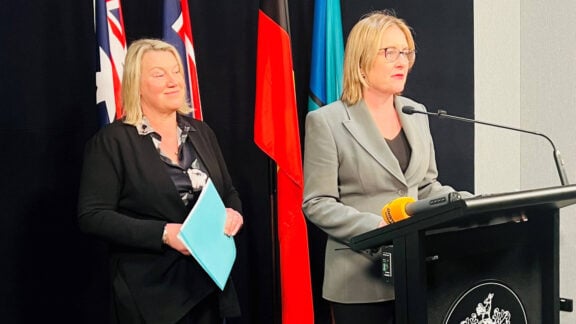The NSW Chief Health Officer Dr Kerry Chant has stated worried over predictions of a continuous rise in new coronavirus infections.
New South Wales had another tally of more than 400 (415) new cases on Sunday, after the record-breaking 466 new COVID-19 infections on Saturday that led to the decision of a state-wide lockdown.
“I cannot stress enough the seriousness of the current situation, and my grave concerns that these case numbers will continue to escalate,” Dr Chant said appealing to the public’s “great sense of responsibility to follow the rules.”
Out of the four new fatalities recorded in the state, a woman in her 50s and a man in his 80s were unvaccinated, a woman in her 70s had only recently received her first dose and a woman in her 80s was vaccinated but had underlying chronic conditions.
While the state has now reached a 50 per cent vaccination rate with a first dose of the eligible population, CHO Dr. Chant said that vaccination was one of the tools to tackle the current crisis, and “not a silver bullet” on its own.
“Vaccination alone will not get us out of this situation. We need to follow the public health orders, and my message to everyone is, let’s redouble our efforts for the next couple of weeks. Get those case numbers down. Stay at home.”
The rising trend in cases is expected to continue as the numbers of patients infectious in the community remains stubbornly high.
At least 66 of Sunday’s new cases were in the community for whole or part of the infectious period and at least 276 infections have yet to be linked to a known case.
In a statement appearing to divert from Australia’s national strategy of virus elimination, the NSW Premier said that Delta has made the Covid zero goal “near impossible”.
READ MORE: Transmission, deaths inevitable soon, but ‘right now, we have to be at zero’
“Our aim is to have case numbers as low as possible and to have vaccination rates as high as possible, and with adults, the experience of Delta is that no other jurisdiction has been able to eliminate it,” Gladys Berejiklian said.
“It’s not possible to eliminate it completely. We have to learn to live with it. But the best chance we have to live with it freely and safely is to get the case numbers down as low as possible.”









